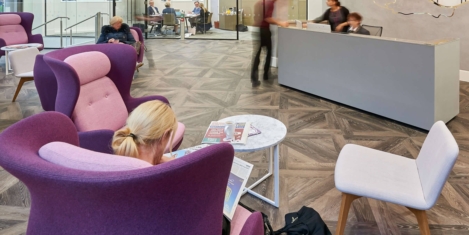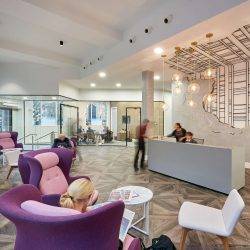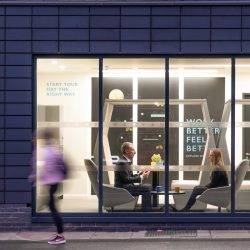April 1, 2019
RICS’ new commercial property service charge rules come into effect today
 New service charge rules which aim to ensure there are no hidden costs and clarity around disputes, come in to force today (1 April 2019) and are mandatory for RICS professionals. ‘Service charges in commercial property’ has been developed with industry leaders, including major property organisations and professional bodies to secure transparent, upfront and fair costs for businesses as part of the maintenance and upkeep of their building. Amongst the rules, any charges incurred by the tenant must be explained fully at the outset and in accordance with the terms of the occupational lease, whilst any upkeep costs not specifically mentioned or explained in a lease must be made irrecoverable from the tenant.
New service charge rules which aim to ensure there are no hidden costs and clarity around disputes, come in to force today (1 April 2019) and are mandatory for RICS professionals. ‘Service charges in commercial property’ has been developed with industry leaders, including major property organisations and professional bodies to secure transparent, upfront and fair costs for businesses as part of the maintenance and upkeep of their building. Amongst the rules, any charges incurred by the tenant must be explained fully at the outset and in accordance with the terms of the occupational lease, whilst any upkeep costs not specifically mentioned or explained in a lease must be made irrecoverable from the tenant.
























 There was a record-breaking rate of take-up within the regional office occupier markets outside of London and the South East in 2018, with few signs of Brexit-related uncertainty, according to an analysis by CBRE. Across the ten regional cities monitored by CBRE, provisional analysis shows that overall take-up reached nearly 7.3m sq ft. This level was 16 percent above the five-year average and 6 percent higher than 2017, the previous record-breaking year. The majority of regional office demand has again been driven by the business and professional services sectors. 2018 saw record take-up from flexible office operators across the UK, representing the leading portion of business services take-up. This was the year the co-working revolution surged into regional cities. Birmingham, Bristol and Glasgow were all stand out expansion locations. With more demand from flexible workspace operators – both from established and new entrants, further expansion is anticipated in 2019 albeit at a further pace as markets become more saturated.
There was a record-breaking rate of take-up within the regional office occupier markets outside of London and the South East in 2018, with few signs of Brexit-related uncertainty, according to an analysis by CBRE. Across the ten regional cities monitored by CBRE, provisional analysis shows that overall take-up reached nearly 7.3m sq ft. This level was 16 percent above the five-year average and 6 percent higher than 2017, the previous record-breaking year. The majority of regional office demand has again been driven by the business and professional services sectors. 2018 saw record take-up from flexible office operators across the UK, representing the leading portion of business services take-up. This was the year the co-working revolution surged into regional cities. Birmingham, Bristol and Glasgow were all stand out expansion locations. With more demand from flexible workspace operators – both from established and new entrants, further expansion is anticipated in 2019 albeit at a further pace as markets become more saturated.









March 8, 2019
On International Woman’s Day – why advancing women is still not a business priority
by Sara Bean • Comment, Legal news, News, Workplace
It has probably not escaped your notice that today is International Woman’s Day, which for Workplace Insight means a plethora of studies on the topic of women/jobs/salaries and ways women might work differently to men. We’ve decided not to waste anyone’s time and ignored most of them (particularly the patronizing ones on how ladies are so intuitive) but managed to find a few kernels of information. First, the good news that women have doubled their share of top jobs at technology companies, pulling in higher salaries than men last year, according to executive search firm Odgers Berndtson. More →